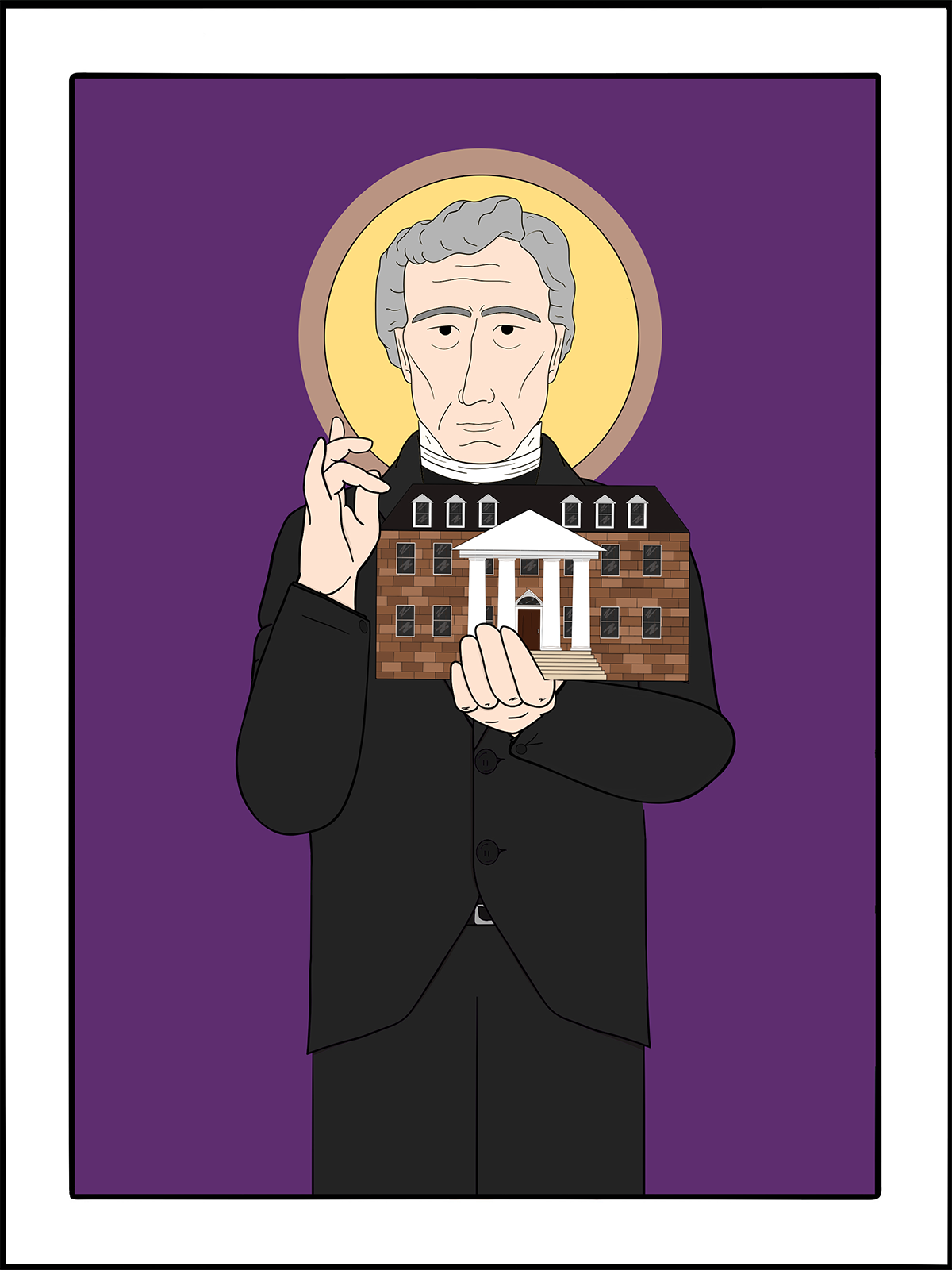
April 8
William Augustus Muhlenberg
Priest, 1877
art by Rev. Kirsten Kohr of Geneva, Ohio Open the eyes of your church, O Lord, to the plight of the poor and neglected, the homeless and destitute, the old and the sick, the lonely and those who have none to care for them. Give to us the vision and compassion with which you so richly endowed your servant William Augustus Muhlenberg, that we may labor tirelessly to heal those who are broken in body or spirit, and to turn their sorrow into joy; through Jesus Christ our Lord, who lives and reigns with you and the Holy Spirit, one God, for ever and ever. Amen.
William Augustus Muhlenberg was born in Philadelphia in 1796, into a prominent German Lutheran family, and was drawn to the Episcopal Church by its use of English. He deliberately chose to remain unmarried in order to free himself for a variety of ministries. As a young priest, he was deeply involved in the Sunday School movement, and was concerned that the church should minister to all social groups. Aware of the limitations of the hymnody of his time, he wrote hymns and compiled hymnals, thus widening the range of music in Episcopal churches.
For twenty years he was head of a boys’ school in Flushing, New York. The use of music, flowers, and color, and the emphasis on the Church Year in the worship there became a potent influence. In 1846, he founded the Church of the Holy Communion in New York City. Again, he was bold and innovative, establishing free pews for everyone, a parish school, a parish unemployment fund, and trips to the country for poor city children. His conception of beauty in worship, vivid and symbolic, had at its heart the Holy Communion itself, celebrated every Sunday. It was there that Anne Ayres founded the Sisterhood of the Holy Communion. In 1857, the two of them founded St. Luke’s Hospital, where Muhlenberg was the pastor-superintendent and she the matron.
Muhlenberg’s concern for sacramental worship and evangelism led him and several associates to memorialize the General Convention of 1853, calling for flexibility in worship and polity to enable the church better to fulfill its mission. The insistence of the “Memorial” on traditional Catholic elements—the Creeds, the Eucharist, and Episcopal ordination—together with the Reformation doctrine of grace, appealed to people of varying views. Although the church was not ready to adopt the specific suggestions of the Memorial, its influence was great, notably in preparing the ground for liturgical reform and ecumenical action.
Muhlenberg’s last great project was an experiment in Christian social living, St. Johnland on Long Island. Although his dream of a Christian city was not realized, several of its philanthropic institutions survive.
Excerpted directly from “Lesser Feasts and Fasts 2022,” p. 180-181.

